"Dear Brothers and Sisters,
"Dear Ordinandi,
"At this hour, dear friends, when you are being introduced as shepherds in the service of the Great Shepherd, Jesus Christ, through the Sacrament of Orders, it is the Lord himself who, in the Gospel, speaks of serving God's flock.
"The image of the shepherd comes from remote times. In the Orient of antiquity, kings would designate themselves as the shepherds of their peoples. Moses and David in the Old Testament, before being called to become the leaders and pastors of the People of God, were in fact shepherds with flocks.
"In the anguish of the period of the Exile, confronted by the failure of Israel's shepherds, that is, of its political and religious leaders, Ezekiel sketched the image of God himself as the Shepherd of his people. Through the prophet God says:
'As a shepherd seeks out his flock... so will I seek out my sheep; and I will rescue them from all places where they have been scattered on a day of clouds and thick darkness' (
Ez 34: 12).
"Jesus now proclaims that this time has come: he himself is the Good Shepherd through whom God himself cares for his creature, man, gathering human beings and leading them to the true pasture.
"St Peter, whom the Risen Lord charged to tend his sheep, to become a shepherd with him and for him, described Jesus as the '
archipoimen' -
'Chief Shepherd' (
cf. I Pt 5: 4), and by this he meant that it is only possible to be a shepherd of the flock of Jesus Christ through him and in very close communion with him.

"The Sacrament of Ordination expresses this very point: through the Sacrament the priest is totally inserted into Christ, so that by starting from him and acting in his sight he may carry out in communion with him the service of Jesus, the one Shepherd, in whom God, as man, wants to be our Shepherd.
"The Gospel we have heard this Sunday is only a part of Jesus' great discourse on shepherds. In this passage, the Lord tells us three things about the true shepherd: he gives his own life for his sheep; he knows them and they know him; he is at the service of unity.
"Before reflecting on these three characteristics essential to shepherds, it might be useful to recall briefly the previous part of the discourse on shepherds in which Jesus, before designating himself as the Shepherd, says, to our surprise:
'I am the door' (
Jn 10: 7).
"It is through him that one must enter the service of shepherd. Jesus highlights very clearly this basic condition by saying:
'he who... climbs in by another way, that man is a thief and a robber' (
Jn 10: 1). This word
'climbs' -
anabainei in Greek - conjures up the image of someone climbing over a fence to get somewhere out of bounds to him.
"'To climb' - here too we can also see the image of careerism, the attempt to 'get ahead', to gain a position through the Church: to make use of and not to serve. It is the image of a man who wants to make himself important, to become a person of note through the priesthood; the image of someone who has as his aim his own exaltation and not the humble service of Jesus Christ.
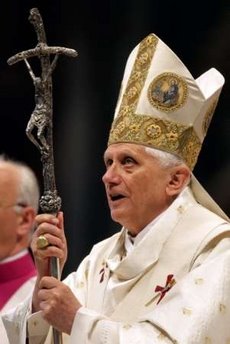
"But the only legitimate ascent towards the shepherd's ministry is the Cross. This is the true way to rise; this is the true door. It is not the desire to become 'someone' for oneself, but rather to exist for others, for Christ, and thus through him and with him to be there for the people he seeks, whom he wants to lead on the path of life.
"One enters the priesthood through the Sacrament, and this means precisely: through the gift of oneself to Christ, so that he can make use of me; so that I may serve him and follow his call, even if it proves contrary to my desire for self-fulfilment and esteem.
"Entering by the door which is Christ means knowing and loving him more and more, so that our will may be united with his will, our action become one with his action.
"Dear friends, let us pray ever anew for this intention, let us strive precisely for this: in other words, for Christ to grow within us and for our union with him to become ever deeper, so that through us it is Christ himself who tends the flock.
"Let us now take a closer look at the three fundamental affirmations of Jesus on the good shepherd. The first one, which very forcefully pervades the whole discourse on shepherds, says: the shepherd lays down his life for the sheep. The mystery of the Cross is at the centre of Jesus' service as a shepherd: it is the great service that he renders to all of us.
"He gives himself and not only in a distant past. In the Holy Eucharist he does so every day, he gives himself through our hands, he gives himself to us. For this good reason the Holy Eucharist, in which the sacrifice of Jesus on the Cross remains continually present, truly present among us, is rightly at the centre of priestly life.
"And with this as our starting point, we also learn what celebrating the Eucharist properly means: it is an encounter with the Lord, who strips himself of his divine glory for our sake, allows himself be humiliated to the point of death on the Cross and thus gives himself to each one of us.
"The daily Eucharist is very important for the priest. In it he exposes himself ever anew to this mystery; ever anew he puts himself in God's hands, experiencing at the same time the joy of knowing that He is present, receives me, ever anew raises and supports me, gives me his hand, himself. The Eucharist must become for us a school of life in which we learn to give our lives.
Free for God
"Life is not only given at the moment of death and not only in the manner of martyrdom. We must give it day by day. Day after day it is necessary to learn that I do not possess my life for myself. Day by day I must learn to abandon myself; to keep myself available for whatever he, the Lord, needs of me at a given moment, even if other things seem more appealing and more important to me: it means giving life, not taking it.

"It is in this very way that we experience freedom: freedom from ourselves, the vastness of being. In this very way, by being useful, in being a person whom the world needs, our life becomes important and beautiful. Only those who give up their own life find it.
"Secondly the Lord tells us: '
I know my own [sheep] and my own [sheep] know me, as the Father knows me and I know the Father' (
Jn 10: 14-15).
"Here, two apparently quite different relationships are interwoven in this phrase: the relationship between Jesus and the Father and the relationship between Jesus and the people entrusted to him. Yet both these relationships go together, for in the end people belong to the Father and are in search of the Creator, of God.
"When they realize that someone is speaking only in his own name and drawing from himself alone, they guess that he is too small and cannot be what they are seeking; but wherever another's voice re-echoes in a person, the voice of the Creator, of the Father, the door opens to the relationship for which the person is longing.
"Consequently, this is how it must be in our case. First of all, in our hearts we must live the relationship with Christ and, through him, with the Father; only then can we truly understand people, only in the light of God can the depths of man be understood. Then those who are listening to us realize that we are not speaking of ourselves or of some thing, but of the true Shepherd.
"Obviously, Jesus' words also contain the entire practical pastoral task, caring for men and women, going to seek them out, being open to their needs and questions.
"Obviously, practical, concrete knowledge of the people entrusted to me is fundamental, and obviously, it is important to understand this way of 'knowing' others in the biblical sense: there is no true knowledge without love, without an inner relationship and deep acceptance of the other.
"The shepherd cannot be satisfied with knowing names and dates. His way of knowing his sheep must always also be knowing with the heart.
"However, it is only possible to do this properly if the Lord has opened our hearts; if our knowing does not bind people to our own small, private self, to our own small heart, but rather makes them aware of the Heart of Jesus, the Heart of the Lord. It must be knowing with the Heart of Jesus, oriented to him, a way of knowing that does not bind the person to me but guides him or her to Jesus, thereby making one free and open. And in this way we too will become close to men and women.
"Let us always pray to the Lord anew that we may be granted this way of knowing with the Heart of Jesus, of not binding to me but of binding to the Heart of Jesus and thereby creating a true community.
"Lastly, the Lord speaks to us of the service of unity that is entrusted to the shepherd:
'I have other sheep that are not of this fold; I must bring them also, and they will heed my voice. So there will be one flock, one shepherd' (
Jn 10: 16).
"John repeated the same thing after the Sanhedrin had decided to kill Jesus, when Caiaphas said that it would be better for the people that one man die for them rather than the entire nation perish. John recognized these words of Caiaphas as prophetic, adding:
'Jesus should die for the nation, and not for the nation only, but to gather into one the children of God who are scattered abroad' (
11: 52).
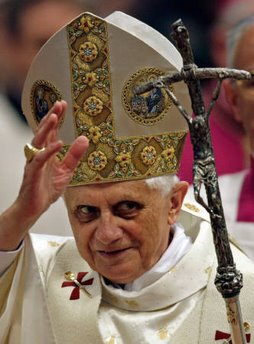
"The relationship between the Cross and unity is revealed: the Cross is the price of unity. Above all, however, it is the universal horizon of Jesus' action that emerges.
"If, in his prophecy about the shepherd, Ezekiel was aiming to restore unity among the dispersed tribes of Israel (
cf. Ez 34: 22-24), here it is a question not only of the unification of a dispersed Israel but of the unification of all the children of God, of humanity - of the Church of Jews and of pagans.
"Jesus' mission concerns all humanity. Therefore, the Church is given responsibility for all humanity, so that it may recognize God, the God who for all of us was made man in Jesus Christ, suffered, died and was raised.
"The Church must never be satisfied with the ranks of those whom she has reached at a certain point or say that others are fine as they are: Muslims, Hindus and so forth. The Church can never retreat comfortably to within the limits of her own environment. She is charged with universal solicitude; she must be concerned with and for one and all.
"We generally have to 'translate' this great task in our respective missions. Obviously, a priest, a pastor of souls, must first and foremost be concerned with those who believe and live with the Church, who seek in her their way of life and on their part, like living stones, build the Church, hence, also build and support the priest.
"However, we must also - as the Lord says - go out ever anew
'to the highways and hedges' (
Lk 14: 23), to deliver God's invitation to his banquet also to those who have so far heard nothing or have not been stirred within.
"This universal service has many forms. One of them is also the commitment to the inner unity of the Church, so that over and above differences and limitations she may be a sign of God's presence in the world, which alone can create this unity.

"Among the sculptures of her time, the ancient Church discovered the figure of a shepherd carrying a sheep across his shoulders. Such images may perhaps be part of the idyllic dream of rural life that fascinated the society of that epoch.
"For Christians, however, this figure with all its naturalness became the image of the One who set out to seek his lost sheep: humanity; the image of the One who follows us even into our deserts and confusion; the image of the One who took upon his shoulders the lost sheep, which is humanity, and carried it home.
"It has become the image of the true Shepherd, Jesus Christ. Let us entrust ourselves to him. We entrust you to him, dear brothers, especially at this moment, so that he may lead you and carry you all the days of your life; so that he may help you to become, through him and with him, good shepherds of his flock. Amen!"
Pope Benedict XVI
Homily, Mass for Priesthood Ordination
May 7, 2006
(translation by the Holy See)
 A Penitent Blogger
A Penitent Blogger

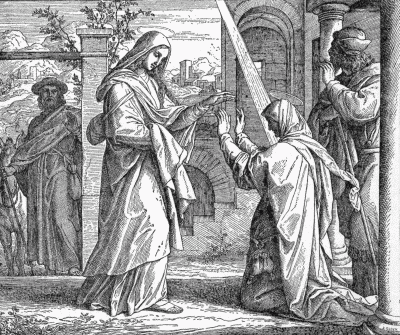


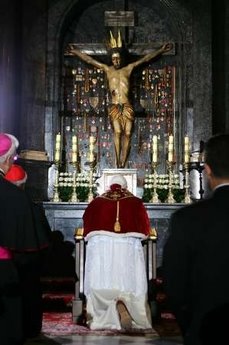
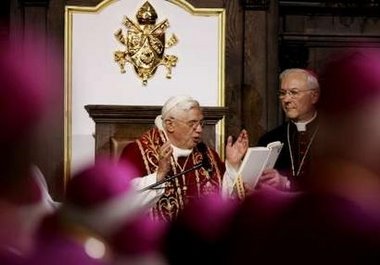
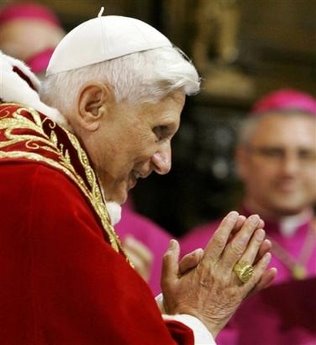
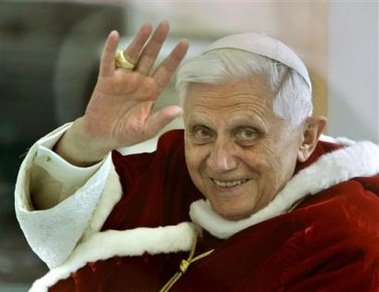



 "We devote much of our day to the Word of God, through reading and in liturgical prayer. This life of prayer bears fruit in hospitality, providing an opportunity for people to be in an atmosphere where they can find God."
"We devote much of our day to the Word of God, through reading and in liturgical prayer. This life of prayer bears fruit in hospitality, providing an opportunity for people to be in an atmosphere where they can find God." (from the website of the
(from the website of the 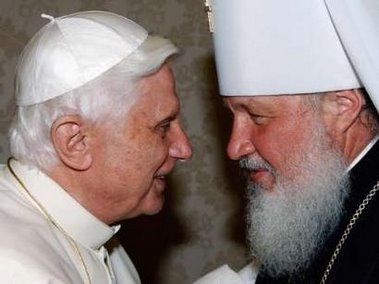





 "But the only legitimate ascent towards the shepherd's ministry is the Cross. This is the true way to rise; this is the true door. It is not the desire to become 'someone' for oneself, but rather to exist for others, for Christ, and thus through him and with him to be there for the people he seeks, whom he wants to lead on the path of life.
"But the only legitimate ascent towards the shepherd's ministry is the Cross. This is the true way to rise; this is the true door. It is not the desire to become 'someone' for oneself, but rather to exist for others, for Christ, and thus through him and with him to be there for the people he seeks, whom he wants to lead on the path of life.

